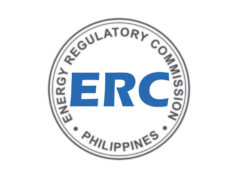EU says ‘no surprises’ in GSP+ report, PHL fully informed
THE European Union (EU) delegation to the Philippines said the government has been fully informed on the progress of discussions to retain the country’s Generalized System of Preferences plus (GSP+) status, with the report to be released next year expected to contain “no surprises.”
EU Ambassador Franz Jessen told reporters in a news conference for the upcoming EU-PH Business Summit at the Makati Shangri-La hotel that while he does not want to “preempt any conclusions” that the report may reach, the Philippine government should have a good idea what the report contains, saying only that country’s progress is mixed.
“We are in a very good dialogue with the DTI (Department of Trade and Industry), as we go through this GSP +, [it] comes through in a very transparent and very mutual matter with the government,” he added.
“There will be no surprises for them in the final report as we make sure that we have an ongoing dialogue. The idea is to work hand-in-hand to make progress on different issues.”
Trade Secretary Ramon M. Lopez and special envoy Senator Juan Edgardo M. Angara held talks with the EU Parliament last month in Brussels to discuss the continuation of GSP+ status, which confers certain tariff-free export privileges on beneficiary nations, but which is set to expire in 2023.
By then, Mr. Lopez said that the Philippines hopes to secure free trade agreements with European countries.
Mr. Lopez said earlier that he is positive the European Parliament recognizes the government’s efforts to adhere to human rights and labor standards — an issue raised by four countries which he did not name. He also reported a 36% increase in exports due to the GSP+ privileges.
While there were earlier reports of the Philippines seeking to expand the list of products under GSP+, Mr. Jessen said the EU has not received any requests on the matter.
When asked if European businesses will be affected by the report, Mr. Jessen said that there will only be little concern for European companies in the Philippines who rely on the local work force.
In terms of the government’s efforts to foster economic growth, Europe-Philippines Business Network (EPBN) steering committee chair and European Chamber of Commerce of the Philippines President Guenter Taus said that the government should focus on the training of workers especially in the manufacturing sector.
“The government keeps on saying [the] ‘Build, Build, Build’ [approach] will make the Philippines the next tiger in Asia. I believe that we have to simultaneously build more jobs because what happens if and when the ‘Build, Build, Build’ phase is over? And what’s next? So now is the time to lay a foundation for what happens in the next 15 to 20 years to make sure that the labor force you have is prepared for what’s coming and the market has ample jobs to sustain the growth,” he said.
Citing other obstacles to economic progress Mr. Taus noted the restrictive Foreign Investments Negative List and the departure for foreign jobs of skilled workers.
“One of our biggest challenge here is finding the right talent. One of the major hindrances in the ‘Build, Build, Build’ program of the government because you do not have the right workers. We need to focus on educating the work force,” he said.
“We’re talking purely trade school. Because we don’t have tradesmen. The good tradesmen that we have are out of the country. So, I think it’s time now for the government to look into the possibility of bringing those tradesmen back because we badly need them.”
Mr. Taus said that the opening of the Philippine economy to foreign businesses does not mean entry of foreign workers as well.
“The government gives grants for upgrading technology but you don’t need money, all you need to do is to open up the economy to foreign players and they will automatically bring in the technology that you need.”
“[B]ut that doesn’t mean that bringing in the construction company will bring in 500 workers. That’s not how it works. You always use the labor available where you are. Educate the local work force with the standards that you want.
Other recommendations by the EPBN will be released in the 3rd edition of the Advocacy Papers on Oct. 17 during the EU-Philippines Business Summit, which hands out recommendations to the government to boost competitiveness and trade relations. — Elijah Joseph C. Tubayan



